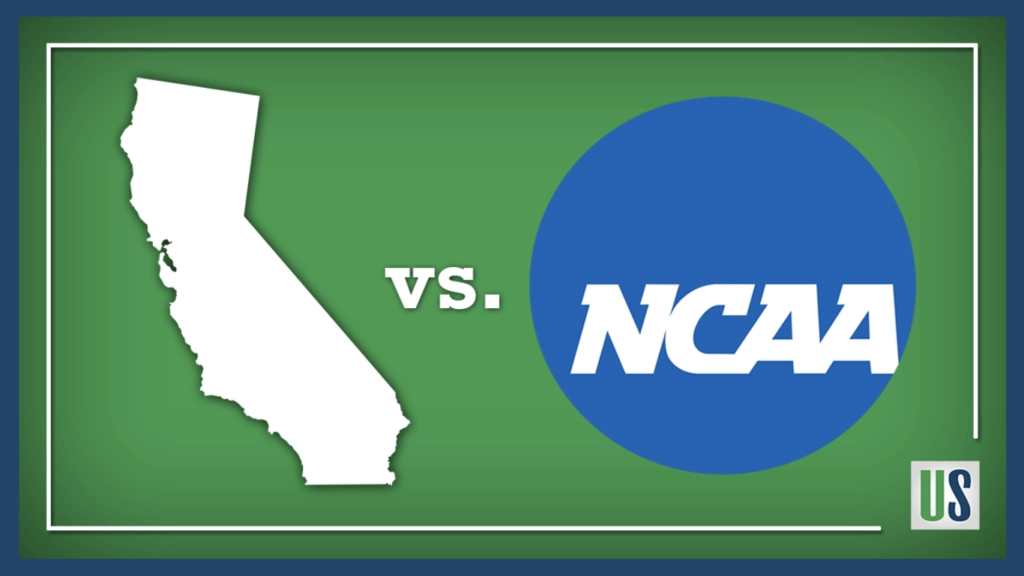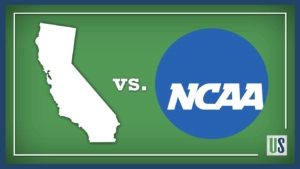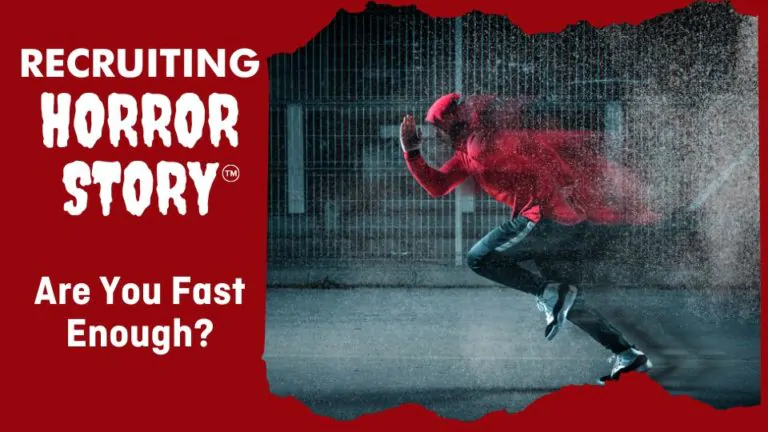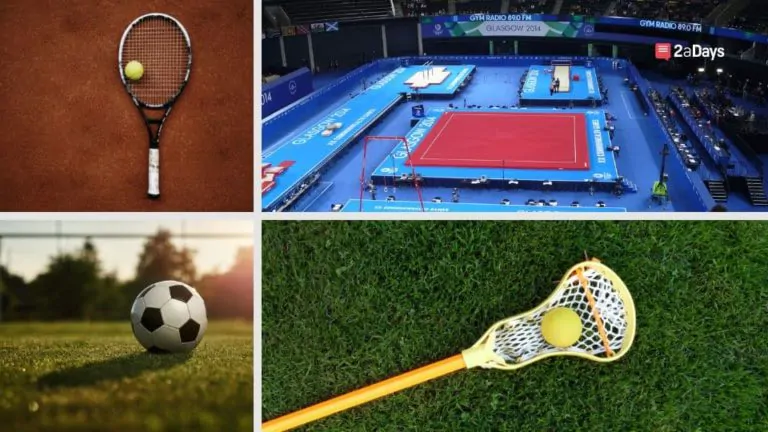The NCAA has long held a monopolistic hold over college athletes. In this regard, the NCAA has created rules and regulations which suppress college athletes from having the same freedoms that come from professional sports. The rationale behind such suppression is the athletic scholarships awarded to student-athletes. This rationale is, however, no longer acceptable to student-athletes across the nation. Change has been a rallying call for many, and the state of California has heard this need to change loud and clear.
California has begun the process of allowing student-athletes the ability to profit off of their name, image, and likeness through the Fair Pay to Play Act. This act is for athletes who are part of schools where their media rights surpass 10 million dollars. Simply put, California is extending the ability for an athlete to benefit from their intellectual property, which is a legal right held in high esteem across the nation. This act will allow student-athletes to profit in the form of advertisement, memorabilia, endorsement deals, and any other form of licensure agreement. Moreover, the Fair Pay to Play Act will allow agents to be hired by student-athletes to represent and guide them through any and all dealings.
The NCAA is prepared to enact harsh repercussions if California follows through with the proposed act. The repercussions do have strong merit, as California schools will have a comparative advantage over the rest of the nation concerning the recruiting process. For example, if a 5-star recruit is deciding to play football at Alabama, Georgia, or USC, their potential ability to make thousands of dollars at USC compared to nothing at Alabama or Georgia may provide the necessary added incentive to choose the California school. Imagine this hypothetical example being compounded across all sports and all athletes. One can picture an environment where California reaps the reward of such an act at the expense of other schools across the nation.
To combat the glaring disparity between California schools and all others, the NCAA is formulating the idea of penalizing California by banning their collegiate schools from participating in championship events. Moreover, it is believed that the NCAA would be willing to isolate California in a way that would essentially oust them from the NCAA entirely.
On the surface, the NCAA enacting repercussions makes sense intuitively, as explained in the aforementioned hypothetical scenario. However, the NCAA is the underlying problem, not California. The NCAA proposed response to the Fair Pay to Play Act would prevent athletes from reaping the rewards of their hard work and success. The reason for this proposal would be to prevent universities from capturing the millions of dollars made from prime-time games, yet, the negative externality comes at the expense of student-athletes. Harming the athlete at the expense of some alternative motive has been seen throughout the history of the NCAA, i.e., the transfer rule.
The NCAA being the underlying problem, does not stop at harming student-athletes via declining the ability to participate in certain events. The real issue which will come from the Fair Pay to Play Act is the fact that the NCAA prevents student-athletes on a national-level from profiting off of their name, image, and likeness. Not long ago, a college basketball player from UCLA, Ed O'Bannon, filed a lawsuit against the NCAA. O'Bannon was seeking compensation for the use of marketing of collegiate athletes done by the NCAA. The court gave an ambiguous ruling, where the ruling stood for the proposition that student-athletes “should” be allowed to receive a “limited” share of the revenue generated images and likenesses. This ruling, however, gave no specific direction towards the NCAA. Instead of changing with the underlying intention of the ruling, the NCAA decided to hold true with their beliefs regarding the nature of what a student-athlete should be allowed to have monetarily.
Laying out the facts for both sides, I spoke with a current collegiate athlete about the situation at hand.
The first question that I asked was, do you believe the state of California is acting in the best interest of college athletes.
Response: I think the fundamental notion of allowing athletes to better themselves financially, while in college, is a must. I also think the monetary incentive to make money off of one's own image and name should not come with such a forceful response by the NCAA. All California is doing is allowing someone to better themselves at no expense of another. I think California should continue to move in the direction of making the Fair Pay to Play Act a reality.
Do you think the NCAA will, in fact, enact repercussions towards California schools, or do you think the NCAA will nationalize the state-law?
Response: Based on my experience and other stories I have heard revolving around NCAA, I believe they will, in fact, create a punishment for the California schools. I don't think they should, but I do believe they will.
If you were a recruit looking to play in a Power 5 conference, would the Fair Pay to Play Act incentivize you to go to a California school compared to someplace else?
Response: It depends. If I am one of the top recruits in the nation for one of the three major sports – football, basketball, or baseball – I am going to choose to play my college ball in California. If I am simply a good player and a sought after recruit, I probably wouldn't have any added incentive to play in California. I think only the athletes who will make money are those nationally recognized, so I don't think the legal decision would change the minds of the majority of athletes.
Have you heard any of your teammates/friends discuss the idea of student-athletes getting paid?
Response: A ton of my teammates and friends think student-athletes should get paid. The weekly practice times, games, and travel account for nearly a full-time job. Getting some sort of payment for the work put in seems like a fair deal.
What do you think the national response would be if the NCAA enacts the repercussions listed in this article?
Response: I think people would be outraged. Having the NCAA refused to allow teams to play in championship events is simply unfair to the athletes. I believe athletes and non-athletes alike would rally together to voice their disapproval of the NCAA's decision.
Although the NCAA holds a tight grasp over college athletics, the ability to enact their monopolistic power may, in fact, be far less reliable than anticipated. Athletes in today's climate have more power than ever before. Social media enables student-athletes to have their voices heard on a national level. If California does, in fact, enact the Fair Pay to Play Act, and the NCAA answers with harsh repercussions, then the collective group of student-athletes will voice their disapproval. Creating a nationally recognized collective opinion will put downward pressure on the NCAA. This pressure will be far more forceful if it follows the passing of the Fair Pay to Play Act. Therefore, change does look like it is on the horizon for college sports, with such act being the tip of the spear.
* Originally published on December 12, 2019, by Joe Pounders






